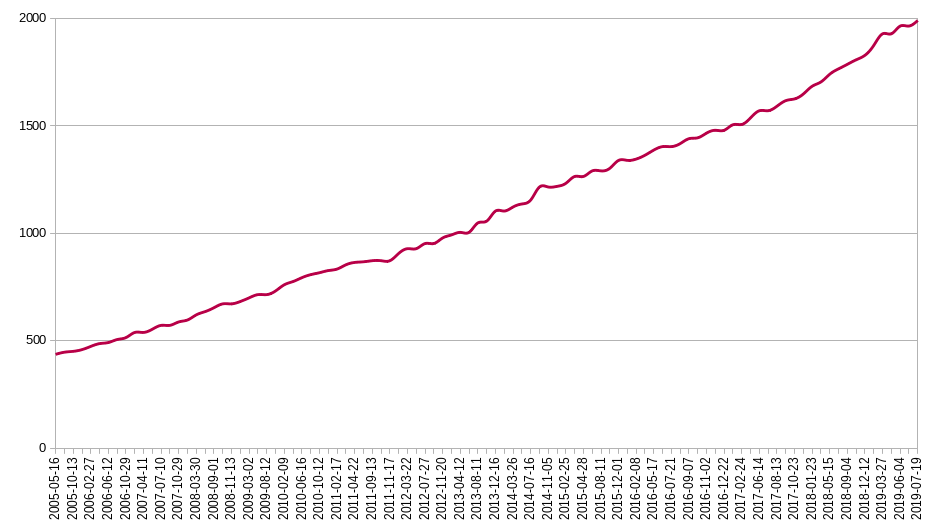In the afternoon of August 5 2019, I successfully made curl request a document over HTTP/3, retrieve it and then exit cleanly again.
(It got a 404 response code, two HTTP headers and 10 bytes of content so the actual response was certainly less thrilling to me than the fact that it actually delivered that response over HTTP version 3 over QUIC.)
The components necessary for this to work, if you want to play along at home, are reasonably up-to-date git clones of curl itself and the HTTP/3 library called quiche (and of course quiche’s dependencies too, like boringssl), then apply pull-request 4193 (build everything accordingly) and run a command line like:
curl --http3-direct https://quic.tech:8443
The host name used here (“quic.tech”) is a server run by friends at Cloudflare and it is there for testing and interop purposes and at the time of this test it ran QUIC draft-22 and HTTP/3.
The command line option --http3-direct tells curl to attempt HTTP/3 immediately, which includes using QUIC instead of TCP to the host name and port number – by default you should of course expect a HTTPS:// URL to use TCP + TLS.
The official way to bootstrap into HTTP/3 from HTTP/1 or HTTP/2 is via the server announcing it’s ability to speak HTTP/3 by returning an Alt-Svc: header saying so. curl supports this method as well, it just needs it to be explicitly enabled at build-time since that also is still an experimental feature.
To use alt-svc instead, you do it like this:
curl --alt-svc altcache https://quic.tech:8443
The alt-svc method won’t “take” on the first shot though since it needs to first connect over HTTP/2 (or HTTP/1) to get the alt-svc header and store that information in the “altcache” file, but if you then invoke it again and use the same alt-svc cache curl will know to use HTTP/3 then!
Early days
Be aware that I just made this tiny GET request work. The code is not cleaned up, there are gaps in functionality, we’re missing error checks, we don’t have tests and chances are the internals will change quite a lot going forward as we polish this.
You’re of course still more than welcome to join in, play with it, report bugs or submit pull requests! If you help out, we can make curl’s HTTP/3 support better and getting there sooner than otherwise.
QUIC and TLS backends
curl currently supports two different QUIC/HTTP3 backends, ngtcp2 and quiche. Only the latter currently works this good though. I hope we can get up to speed with the ngtcp2 one too soon.
quiche uses and requires boringssl to be used while ngtcp2 is TLS library independent and will allow us to support QUIC and HTTP/3 with more TLS libraries going forward. Unfortunately it also makes it more complicated to use…
The official OpenSSL doesn’t offer APIs for QUIC. QUIC uses TLS 1.3 but in a way it was never used before when done over TCP so basically all TLS libraries have had to add APIs and do some adjustments to work for QUIC. The ngtcp2 team offers a patched version of OpenSSL that offers such an API so that OpenSSL be used.
Draft what?
Neither the QUIC nor the HTTP/3 protocols are entirely done and ready yet. We’re using the protocols as they are defined in the 22nd version of the protocol documents. They will probably change a little more before they get carved in stone and become the final RFC that they are on their way to.
The libcurl API so far
The command line options mentioned above of course have their corresponding options for libcurl using apps as well.
Set the right bit with CURLOPT_H3 to get direct connect with QUIC and control how to do alt-svc using libcurl with CURLOPT_ALTSVC and CURLOPT_ALTSVC_CTRL.
All of these marked EXPERIMENTAL still, so they might still change somewhat before they become stabilized.
Update
Starting on August 8, the option is just --http3 and you ask libcurl to use HTTP/3 directly with CURLOPT_HTTP_VERSION.









